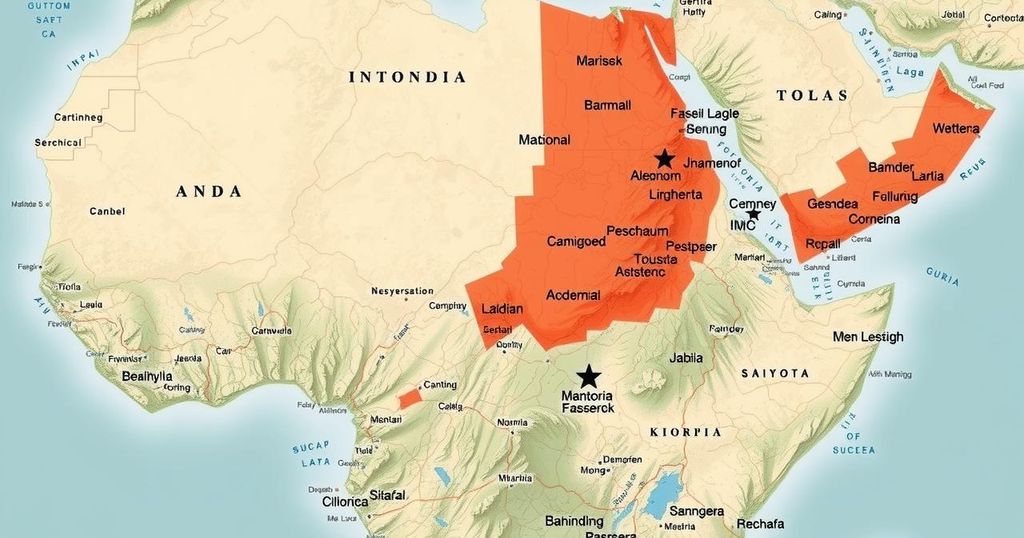The Yemeni Civil War began in 2014 when Houthi rebels seized Sanaa amidst political unrest and humanitarian crises sparked by foreign interventions, particularly from Saudi Arabia. The conflict evolved with significant local and international implications, including the Houthis’ recent aggression towards Israel. Despite multiple attempts at negotiation, the situation remains unstable with severe humanitarian consequences.
The Yemeni Civil War, which commenced in 2014, continues to devastate the country amidst a backdrop of political instability and humanitarian disaster. The conflict erupted after Houthi rebels seized the capital, Sanaa, fueled by deep-seated grievances against the government of President Ali Abdullah Saleh, who had ruled since 1978. Saudi Arabia and the United Arab Emirates intervened, leading to widespread starvation and leading to a cholera outbreak.
The conflict’s roots trace back to the Arab Spring of 2011, when protests against President Saleh’s regime erupted in Yemen, similar to events in Tunisia and Egypt. The protests, organized by a coalition of various opposition groups, faced brutal repression from government forces, culminating in significant casualties and mass resignations from the government, prompting Saleh to eventually resign in 2012.
The power vacuum following Saleh’s departure led to intensified conflicts between Houthi forces and various other militant groups, including al-Qaeda in the Arabian Peninsula (AQAP). Hadi, Saleh’s vice president, took over but struggled with a fragmented society rife with discontent and economic hardship. Deep cuts in fuel subsidies in 2014 incited public outrage, paving the way for the Houthi takeover of Sanaa by September.
Amidst ongoing turmoil, Hadi fled to Aden, where he attempted to regain control with international support, culminating in a Saudi-led military intervention aimed at defeating the Houthi rebels. Despite initial victories in southern Yemen, efforts to reclaim the capital have been marred by devastating airstrikes, humanitarian crises, and increasing difficulties in engaging Houthi forces.
By December 2015, the United Nations brokered peace talks, which frequently faltered amid a dire humanitarian situation exacerbated by a cholera outbreak. The coalition faced significant setbacks, including a turning point in late 2017, when Saleh aligned with the Houthis before his assassination.
In recent years, the conflict has persisted in a state of stalemate, with increasing hostilities and failed diplomatic efforts. Amid the COVID-19 pandemic, Saudi Arabia announced a cease-fire in April 2020, and subsequent negotiations with Houthi leaders considered the allocation of Yemen’s oil revenues as a critical issue.
In 2023, the situation escalated with the Houthi rebels targeting Israel following the outbreak of hostilities between Hamas and the Israeli government, which prompted retaliatory measures from the United States. These developments illustrate the shifting dynamics of the conflict and the Houthis’ desire to assert themselves as a dominant force in regional matters.
The Yemeni Civil War represents a complex interplay of historical grievances, foreign intervention, and the struggle for power within a fractured society. Despite numerous attempts at peace and international intervention, the conflict continues to evolve, marked by humanitarian crises and shifting alliances. Recent events, particularly the Houthi’s aggressive posturing towards Israel, indicate that the conflict is far from resolution and will likely have considerable implications for regional stability.
Original Source: www.britannica.com






